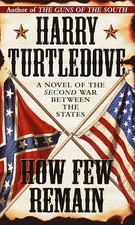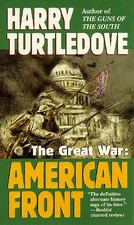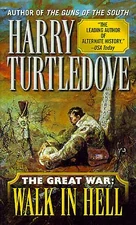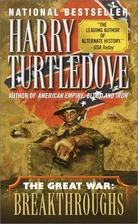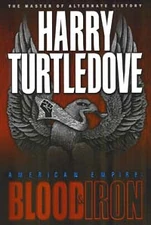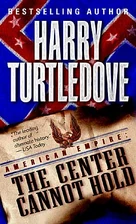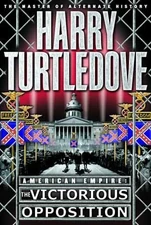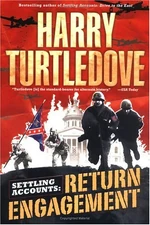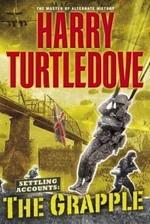No edit summary |
|||
| Line 9: | Line 9: | ||
[[Jefferson Pinkard]] worked in the Foundry until he was drafted during the [[Great War]], and he returned to it at the war's end, and returned again after fighting as a [[Freedom Party]] volunteer in the [[Mexican Civil War]]. He finally lost his job as the foundry was hit by the economic crisis of the early 1930s. |
[[Jefferson Pinkard]] worked in the Foundry until he was drafted during the [[Great War]], and he returned to it at the war's end, and returned again after fighting as a [[Freedom Party]] volunteer in the [[Mexican Civil War]]. He finally lost his job as the foundry was hit by the economic crisis of the early 1930s. |
||
| − | The Foundry was extensively rebuilt and modernized by the [[Freedom Party]] after it took control of the [[Confederate States (Southern Victory)|Confederacy]] in the 1930s. It greatly benefitted from [[President (CS-Southern Victory)|President]] [[Jake Featherston]]'s effort to build up a |
+ | The Foundry was extensively rebuilt and modernized by the [[Freedom Party]] after it took control of the [[Confederate States (Southern Victory)|Confederacy]] in the 1930s. It greatly benefitted from [[President (CS-Southern Victory)|President]] [[Jake Featherston]]'s effort to build up a modern army in prepaartion for attacking the United States. |
Revision as of 17:24, 9 May 2010
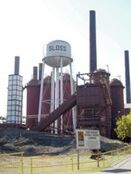
The Sloss Steel Foundry or Sloss Furnaces was built in Birmingham, Alabama by James Withers Sloss, a planter and investor who had been a Colonel in the Civil War and who realised that pig iron could be made in Birmingham purely from Alabama's own iron ore, coke, and limestone. The plant grew fast and was in operation from 1882 until 1971, becoming one of the largest sellers of pig-iron in the world. The depletion of ore and the toughening of air-pollution regulations hastened its closure. Due to its role in Birmingham's history, the former foundry was preserved and declared a National Historic Landmark.
Sloss Steel Foundry in Southern Victory
The Sloss Steel Foundry was built in Birmingham by North Alabama planter and investor James Withers Sloss in the years after the Second Mexican War. Work at the foundry deamanded skill and was sometimes very dangerous, but Sloss workers were relatively highly paid and were given better conditions than in other workplaces, and considered themselves lucky.
Early in the Great War, the foundry's management sought to prevent its workers being drafted into the Confederate military, on the grounds that its smooth functioning was vital to the war effort. When an increasing number of workers were neverthless drafted, some being killed of crippled, Sloss started to hire black workers to take their place. black workers were treated fairy at the foundry, with no overt discrimination, nor were there any objections from their white co-workers.
Jefferson Pinkard worked in the Foundry until he was drafted during the Great War, and he returned to it at the war's end, and returned again after fighting as a Freedom Party volunteer in the Mexican Civil War. He finally lost his job as the foundry was hit by the economic crisis of the early 1930s.
The Foundry was extensively rebuilt and modernized by the Freedom Party after it took control of the Confederacy in the 1930s. It greatly benefitted from President Jake Featherston's effort to build up a modern army in prepaartion for attacking the United States.
